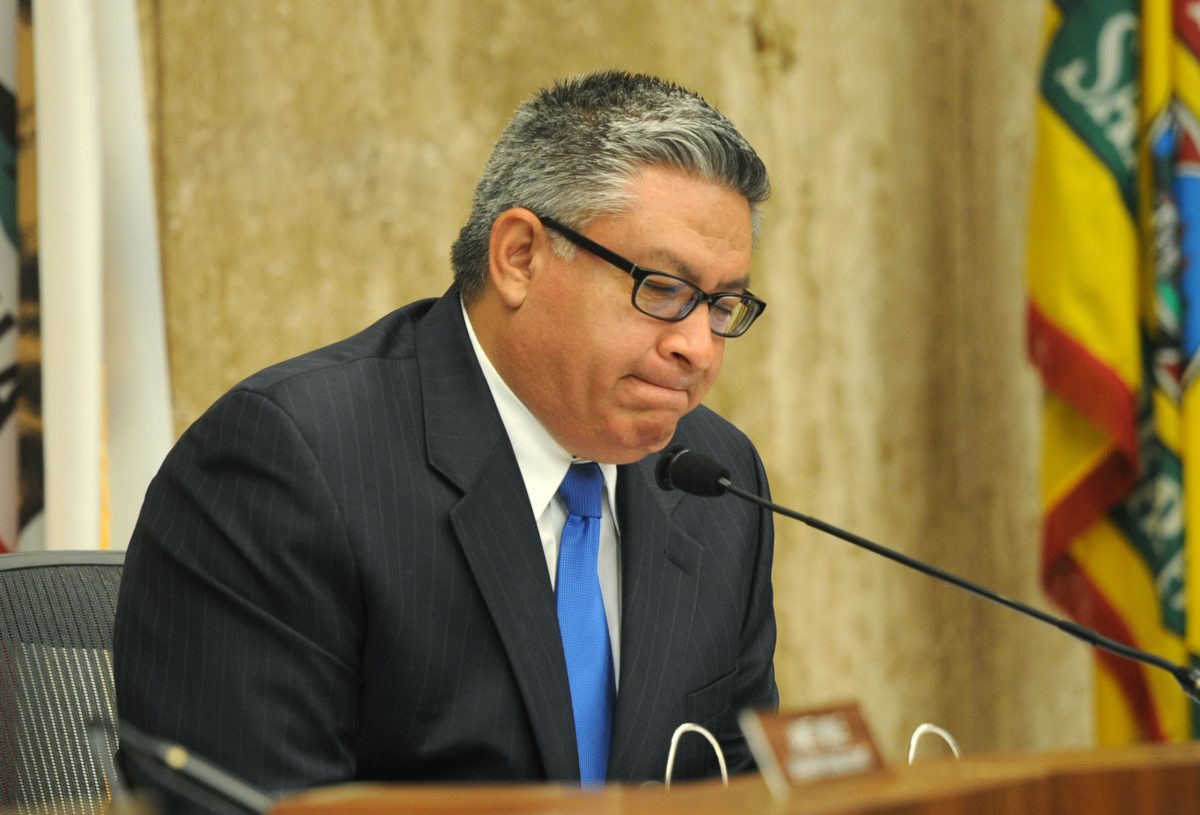What Now?
After Special Counsel Report, Dems Grapple with Way Forward

Salud Carbajal believes the explosive investigative report about Russian interference in the 2016 presidential election contains “very damning and very clear evidence” that Donald Trump engaged in obstruction of justice.
But he’s not calling for the president to be impeached.
“I’m reserving my judgment until we have turned over every stone,” Santa Barbara’s Democratic congressmember told the Independent.
Salud’s “yes-but” comments on Special Counsel Robert Mueller’s report not only reflect one man’s natural political caution but also point to a broader strategic and ethical debate among Democrats over what to do about its findings.
Trump and his supporters have shouted from the rooftops that Mueller’s report proves there was “no collusion” between his 2016 campaign and Russia and provides him “complete and total exoneration.”
It does not.
With awkward legalese, the special prosecutor made clear that Trump’s behavior in the scandal was improper:
“If we had confidence after a thorough investigation of the facts that the President clearly did not commit obstruction of justice, we would so state,” he wrote. “Based on the facts and the applicable legal standards we are unable to reach that judgment.”
However, the report added, the investigation was subject to a Justice Department guideline that a sitting president cannot be indicted — regardless of evidence he could be.
Mueller signaled that further action on the painstaking evidence in the 448-page report is up to Congress:
“Congress has authority to prohibit a President’s corrupt use of his authority in order to protect the integrity of the administration of justice … our constitutional system of checks and balances and the principle that no person is above the law.”
Now, a progressive House faction is trying to advance an impeachment resolution, the equivalent of indicting a president for what the Constitution calls “high crimes and misdemeanors.” Speaker Nancy Pelosi and other party leaders, however, insist it would be a mistake to do so.
Carbajal told us that before Dems consider the step, the House should hear from Mueller directly and also obtain complete copies of the report without the many redactions of the version released by Attorney General William Barr, who’s been criticized for soft-pedaling the evidence with pro-Trump spin.
Mindful that the Republican’s partisan impeachment of Bill Clinton backfired in 1998, he added that the process should be bipartisan: “It doesn’t matter what Democrats do,” he said. “Why put the whole country through it if it’s going to be a partisan exercise?”
FROM RUSSIA WITH LOVE: Volume I of the report describes Russia’s effort to sway the election, and its interactions with the Trump campaign.
Trump’s “no collusion” triumphalism is based largely on a single sentence: “Ultimately the investigation did not establish that the [Trump] Campaign coordinated or conspired with the Russian government in its election interference activities.”
However, Mueller not only indicted dozens of individuals during the investigation but also presented reams of testimonial and documentary evidence that Russia interfered in “sweeping and systematic” fashion, through a “targeted operation that by early 2016 favored candidate Trump and disparaged candidate [Hillary] Clinton.” He also showed how the campaign welcomed the help.
In the end, Mueller said, there was insufficient evidence to prove a “conspiracy” between Russia and Trump, the federal crime at hand; he noted that “collusion,” Trump’s preferred word, is not a crime and legally irrelevant.
OBSTRUCTION PRODUCTION: Volume II focuses on obstruction of justice, offering evidence of 10 instances when Trump personally sought to undermine or stop the investigation, firing the FBI director, commanding aides to lie, and directly ordering the special counsel’s firing, among other actions.
Beyond the Russia campaign interference material, it is Trump’s repeated efforts to thwart the probe that the House almost certainly would pursue in any impeachment effort.
Laurence Tribe, a famed liberal legal scholar, who previously advised Democrats to go slow on impeachment, said after the report’s release that Volume II “provides a perfect roadmap for impeaching this president for obstruction of justice.”
CIVICS VS. POLITICS: For some Democrats, the sworn duty to uphold the Constitution collides with political calculation.
Although Dems control the House — and the power to pass an “Articles of Impeachment” indictment — the Republican-dominated Senate would conduct the trial, and the chances are slim to none that Trump would be convicted.
That fact, coupled with how impeachment would further divide a bitterly polarized nation, unnerves many Democrats, particularly those just elected in the wave that flipped many purple swing districts previously held by Republicans.
Others, like Senator Elizabeth Warren, say partisan concerns should be put aside, however: “The severity of this misconduct demands that elected officials in both parties set aside political considerations and do their constitutional duty.”
“Impeachment is likely to be unsuccessful,” acknowledged California Representative Adam Schiff, chair of the House Intelligence Committee, who has long assailed Trump over Russia, on ABC. “It may be that we undertake an impeachment nonetheless.”
Rep. Carbajal is hosting a town hall meeting in S.B. Thursday, April 25, “to answer Central Coast residents’ questions and provide an overview of legislation” in Congress: 5:30-7 p.m. at the S.B. County Education office auditorium. There’s plenty of free parking.



